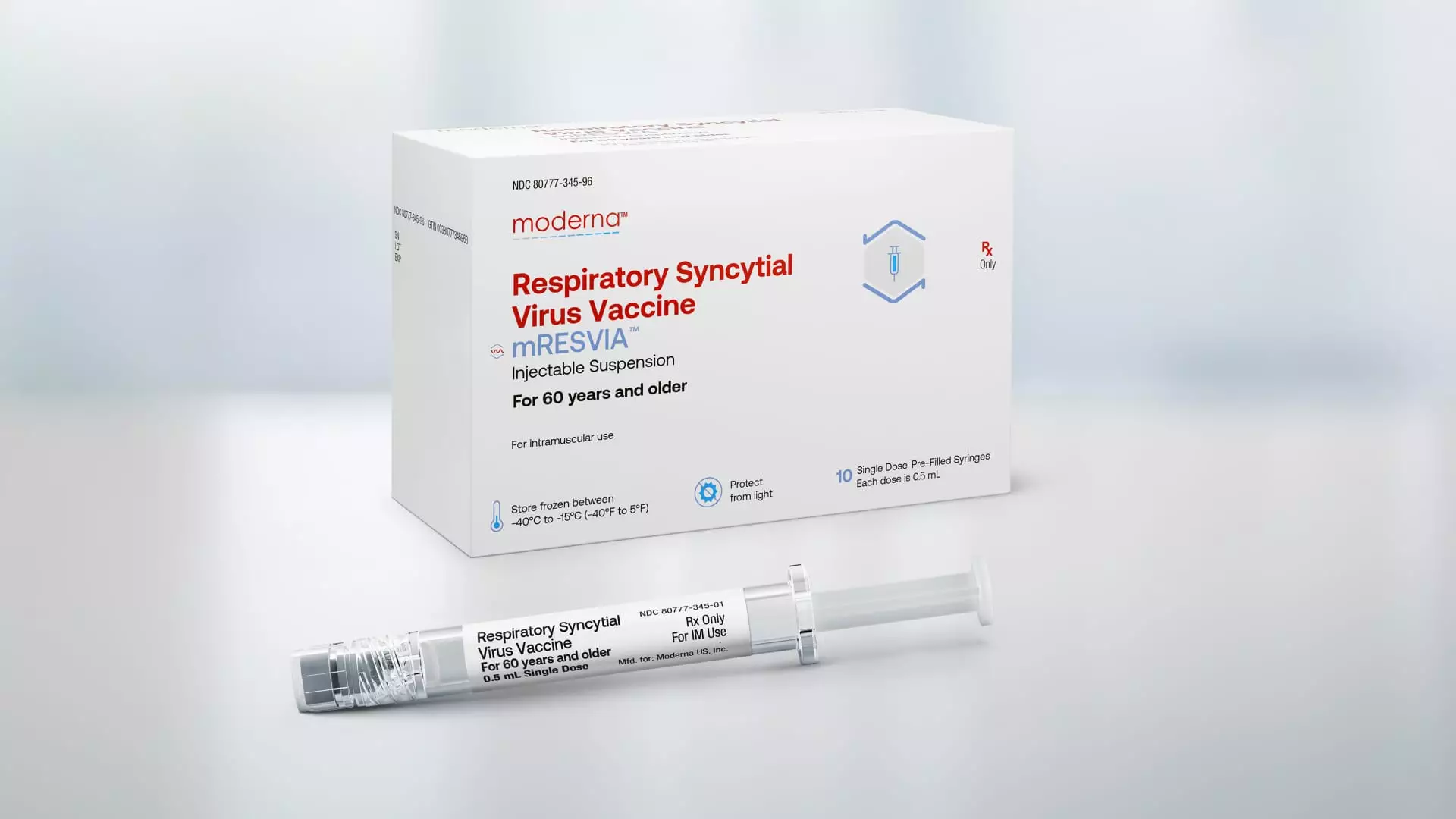On Friday, the Food and Drug Administration granted approval to Moderna for their vaccine targeting respiratory syncytial virus (RSV) in adults aged 60 and above. This marks the company’s second product to be approved for use in the U.S. market. The decision comes at a crucial time for Moderna, as the demand for their Covid vaccine has significantly decreased in recent months. The approval was based on a late-stage trial that focused on older adults, who are at higher risk of severe cases of RSV. According to data from the Centers for Disease Control and Prevention, RSV is a serious virus that results in thousands of deaths and hospitalizations in seniors every year.
The approval of Moderna’s RSV vaccine, to be marketed as mRESVIA, is a significant milestone for the company. It is the first messenger RNA vaccine to be approved for a disease other than Covid, showcasing the versatility of Moderna’s technology platform. Additionally, the vaccine will be available in a pre-filled syringe, making it easier to administer to patients. This approval opens up a new revenue stream for Moderna, which has been banking heavily on its Covid vaccine for sales.
An advisory panel to the CDC is set to vote on recommendations for the use and target population of Moderna’s RSV vaccine in June. Moderna executives have expressed confidence that their vaccine will receive a positive recommendation, allowing it to compete with other RSV vaccines on the market, such as those from GSK and Pfizer. With a full-year sales guidance of around $4 billion for 2024, Moderna is looking to capitalize on the success of its RSV vaccine and expand its product portfolio to include treatments for a range of diseases.
Moderna currently has more than 40 products in development, several of which are in late-stage trials. These include a combination shot targeting Covid and the flu, a stand-alone flu vaccine, a personalized cancer vaccine in collaboration with Merck, and treatments for latent viruses. The company is confident in its ability to return to sales growth by 2025 and break even by 2026, thanks to the launch of new products. Investors are optimistic about the long-term potential of Moderna’s mRNA product pipeline, leading to a significant increase in the company’s stock value.
Despite the approval of Moderna’s RSV vaccine, concerns have been raised about the declining efficacy of the vaccine over time. A phase three trial showed that the vaccine was 83.7% effective in preventing symptoms of RSV at three months, but this number dropped to 63% at 8.6 months. This decline has led to comparisons with vaccines from GSK and Pfizer, raising questions about the durability of Moderna’s vaccine. The company has defended its results, stating that direct comparisons are not possible due to differences in study populations and criteria.
The approval of Moderna’s RSV vaccine for older adults represents a significant achievement for the company and a step towards diversifying its product portfolio. With a strong pipeline of products in development and a focus on addressing global health threats, Moderna is poised for continued growth in the coming years. Despite challenges and concerns, the company remains optimistic about the future of its messenger RNA platform and the impact it can have on public health.

